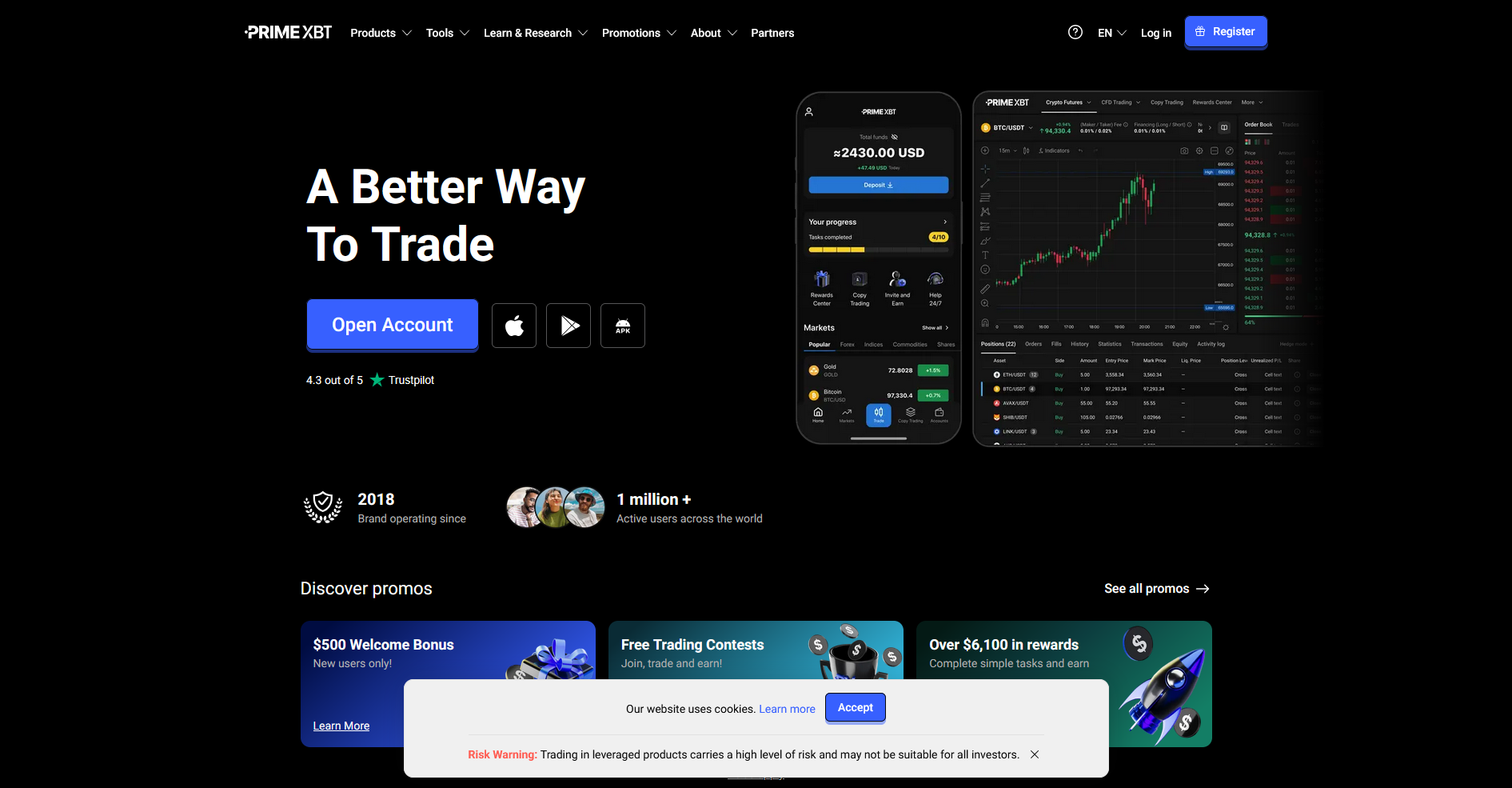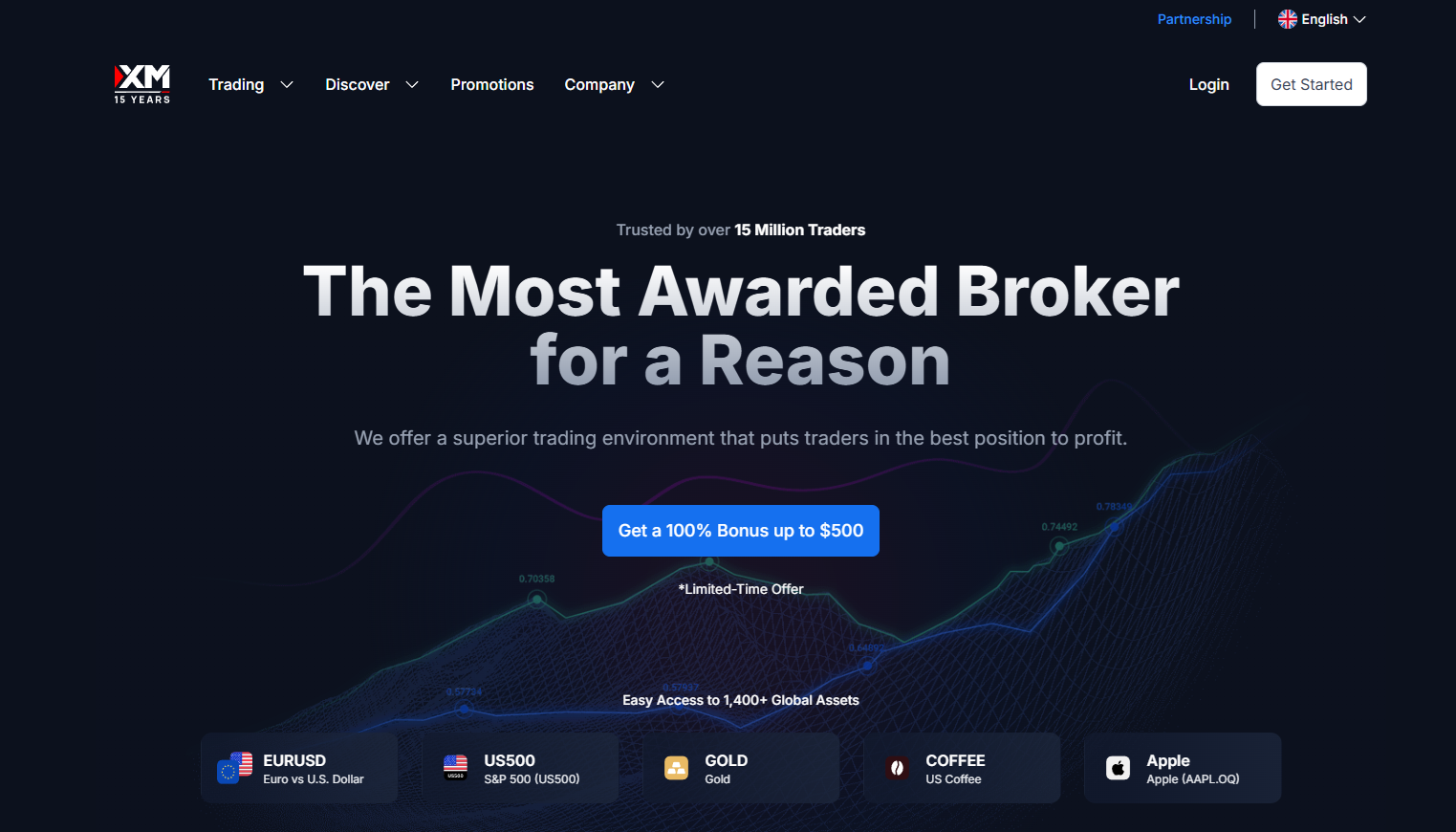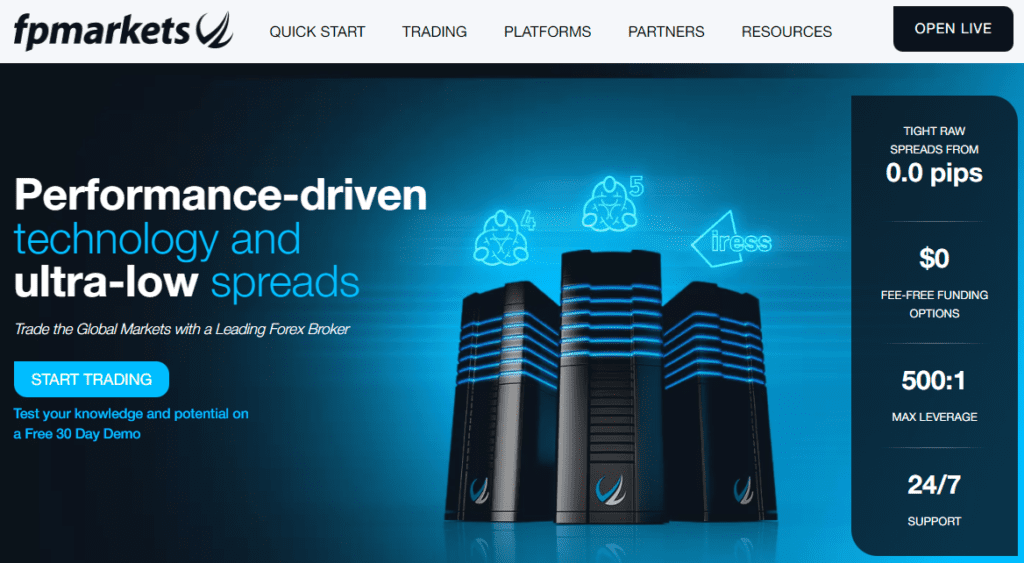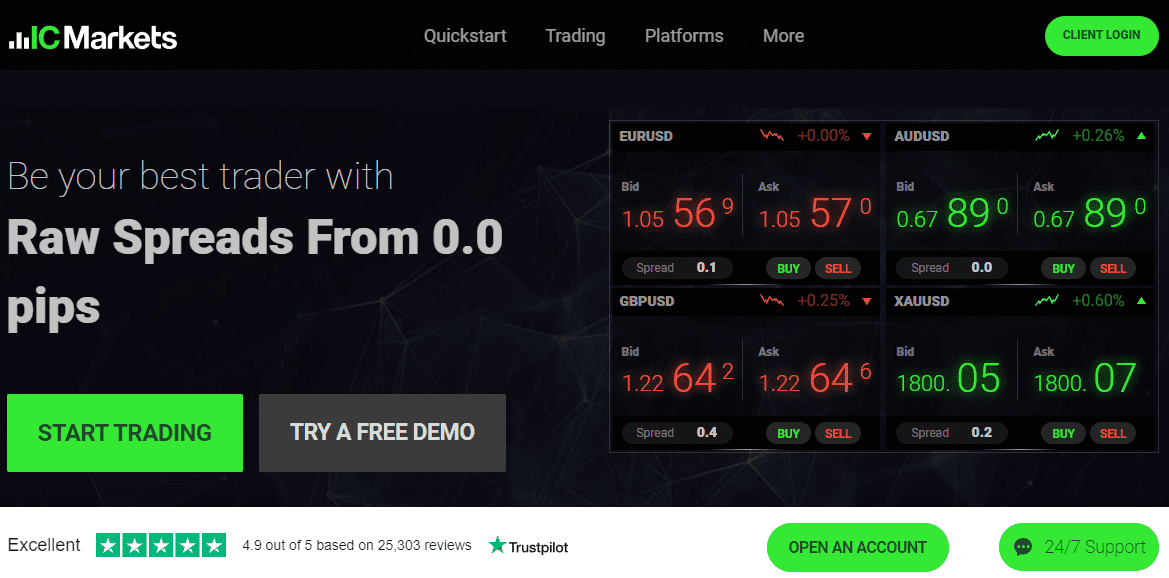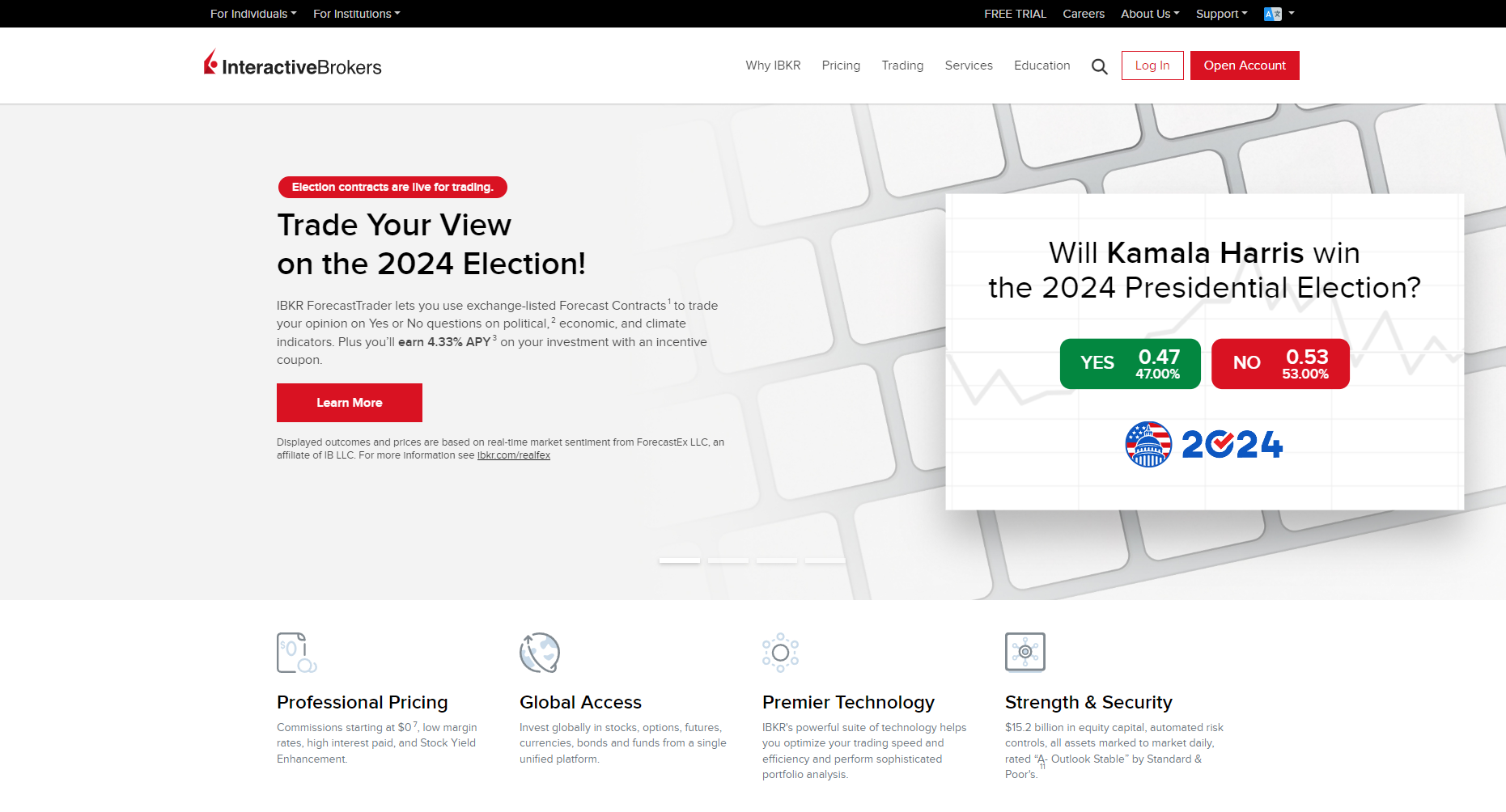At Asia Forex Mentor, we understand that choosing the best forex brokers in India can feel overwhelming with so many options out there. Whether you're new to forex trading or a seasoned trader looking to optimize your strategy, finding a reliable broker is key. In India, where the forex market is growing fast, it's important to pick a broker that's not only SEBI-regulated but also offers competitive spreads, solid forex trading platforms, and great customer support. After all, your broker should make your trading journey easier, not harder.
In 2026, several brokers have made a name for themselves as top picks for forex traders in India. These brokers offer user-friendly forex trading apps, low trading costs, and robust platforms like MetaTrader 4 and MetaTrader 5. Whether you want to trade forex on the go using the best forex trading app or need a more comprehensive desktop solution, the brokers on our list have something for everyone. Let's break down the top choices that stand out for Indian traders this year.
Overview of Forex Trading in India
Forex trading in India has had a somewhat cautious history. In the early days, the forex market in India was tightly regulated, with strict limitations on who could trade and under what circumstances. Initially, only banks and large financial institutions were allowed to trade forex, and individuals were kept away from direct participation in the market. However, as technology advanced and global financial markets opened up, forex trading in India slowly became more accessible to retail traders.
Today, the Securities and Exchange Board of India (SEBI) regulates forex brokers to ensure that trading activities are safe and transparent for Indian investors. SEBI plays a key role in making forex trading legal and protecting the interests of traders by ensuring that brokers adhere to strict rules. It is important for Indian traders to choose brokers that are SEBI-registered to avoid any legal complications. In addition, the Reserve Bank of India (RBI) also sets guidelines for currency trading, limiting forex traders to trade only specific currency pairs involving the Indian Rupee (INR).
With the rise of technology, there has been a surge in the number of online forex brokers and trading platforms available to Indian forex traders. These platforms, like MetaTrader 4 (MT4) and MetaTrader 5 (MT5), have made it easier to access the forex market. Thanks to the availability of forex trading apps, traders can now trade forex from their mobile devices. The popularity of these forex trading platforms has skyrocketed, providing Indian traders with the opportunity to access global markets, develop trading strategies, and manage trades more conveniently. This has also contributed to the growth of international forex brokers offering services tailored to Indian traders with localized support, lower trading costs, and a variety of account types.
Criteria for Choosing the Best Forex Broker in India
When selecting the best forex broker in India, there are several key criteria to focus on. These factors ensure that your trading experience is not only secure but also optimized for cost and convenience. Here's what to consider:
- Regulation and Security: Always choose a broker regulated by trusted authorities like SEBI or international bodies such as FCA or CySEC. This ensures the broker is legal, safe, and keeps your funds protected in segregated accounts.
- Trading Platforms and Ease of Use: Look for brokers that offer user-friendly platforms such as MetaTrader 4 (MT4), MetaTrader 5 (MT5), or mobile trading apps. These platforms should come with advanced charting tools and customization options for both beginners and experienced traders.
- Spreads, Fees, and Commissions: Compare the spreads (difference between buy/sell prices) and ensure they are competitive, especially for major forex pairs. Check if there are any additional account maintenance fees or commissions, and go for brokers with lower trading costs.
- Customer Support and Localization: Choose a broker that offers excellent customer support, preferably with assistance in local languages, and support available during India's trading hours. This ensures quick help when needed.
- Payment Options and Demo Accounts: Ensure the broker provides convenient payment methods like bank transfers, UPI, or e-wallets. Also, check if they offer a demo account so you can test the platform before investing real money.
The 15 Best Forex Brokers in India
#1. PrimeXBT: Best Overall for Traders in India
What is PrimeXBT?
PrimeXBT is a multi-asset CFD trading platform launched in 2018 that gives users access to forex, commodities, indices, crypto and futures markets from a single account. It offers high leverage (up to 1000:1 on forex in some jurisdictions), tight spreads, fast execution, and copy-trading (Covesting) features that let less experienced traders mimic seasoned ones. The broker is regulated under the FSCA in South Africa and the FSA in Seychelles, and holds various digital-asset licenses (e.g. in El Salvador) to enhance credibility. What makes it a strong choice for Indian forex users is its integration with INR payment rails (UPI, IMPS) for deposits and withdrawals, offering seamless local currency funding and transparency.
Advantages and Disadvantages of PrimeXBT
PrimeXBT Fees and Commissions
PrimeXBT’s fee structure is relatively transparent: for forex, indices and other CFDs, it operates on a spread-only / commission-free model (i.e. no explicit per-trade commission), while crypto trading incurs a fixed 0.05 % transaction fee on each trade. There are also overnight (swap) or funding fees when positions are held past daily cut-off times, which vary by instrument and direction (long vs short). Deposits are generally free, though third-party payment processors may charge fees, and withdrawals for crypto involve network (blockchain) fees; fiat withdrawals may incur fixed fees depending on the method used
OPEN AN ACCOUNT NOW WITH PRIMEXBT AND GET YOUR WELCOME BONUS
#2. XM
What is XM?
XM is a globally recognized forex and CFD broker that offers Indian traders access to over 1,000 financial instruments, including currencies, commodities, indices, and stocks, through powerful platforms like MetaTrader 4 and MetaTrader 5. It is known for its tight spreads, fast execution, and user-friendly trading experience. XM is regulated by top-tier authorities such as CySEC, FSC, FSA, DFSA, FSC, and FSCA, ensuring transparency, fund security, and compliance with international standards. Its no-requotes policy, negative balance protection, and 24/5 multilingual support make it one of the best Indian Forex brokers, particularly valued for its educational resources, local deposit options, and low trading costs.
Advantages and Disadvantages of XM
XM Commissions and Fees
XM structures its fees based on the type of account a trader selects. The Micro and Standard accounts are free from commissions, offering spreads that generally start around 1.6 pips on major forex pairs during normal market conditions. In comparison, the Zero (or “Zero Spread”) account delivers spreads from 0.0 pips, while applying a commission fee of USD 3.50 per lot per side (USD 7 for a round trip). Besides trading-related expenses, XM also charges swap or overnight fees for positions kept open past the trading day and may impose an inactivity fee on dormant accounts.
OPEN AN ACCOUNT NOW WITH XM AND GET YOUR WELCOME BONUS
#3. FP Markets
What is FP Markets?
FP Markets, established in 2005, is a globally recognized Forex and CFD broker offering access to a wide range of financial instruments, including forex, indices, commodities, stocks, and cryptocurrencies. The broker operates under the regulation of the Australian Securities and Investments Commission (ASIC), ensuring compliance with stringent financial standards and providing a secure trading environment. FP Markets is acclaimed for its tight spreads, fast execution speeds, and support for advanced trading platforms such as MetaTrader 4, MetaTrader 5, cTrader, and TradingView, making it a top choice among Forex brokers.
Advantages and Disadvantages of FP Markets
FP Markets Fees and Commissions
In India, FP Markets offers competitive fees and commissions across its account types. The Standard Account features zero commissions, with costs incorporated into the spread, starting from 1.0 pips for major currency pairs. The Raw Account provides spreads from 0.0 pips, with a commission of $3 per lot per side. Notably, FP Markets does not impose inactivity fees or account maintenance charges.
OPEN AN ACCOUNT NOW WITH FP MARKETS AND GET YOUR WELCOME BONUS
#4. IC Markets
What is IC Markets?
IC Markets is a globally recognized broker that is highly recommended for Indian traders due to its excellent reputation and strong regulatory framework. Founded in 2007, it is regulated by major financial authorities such as ASIC, CySEC, and FSA, ensuring a secure trading environment. IC Markets offers access to a wide range of instruments, including forex, commodities, indices, and cryptocurrencies, making it a great option for traders looking to diversify their portfolios. Additionally, the broker supports popular platforms like MetaTrader 4 (MT4), MetaTrader 5 (MT5), and cTrader, which are equipped with advanced charting tools and automated trading capabilities, catering to both beginners and experienced traders.
Advantages and Disadvantages of IC Markets
IC Markets Fees and Commissions
IC Markets is known for offering competitive pricing, particularly with its Raw Spread Account, where spreads can start as low as 0.0 pips for major pairs like EUR/USD. Traders are charged a commission of $3.50 per lot, making it highly cost-effective compared to other brokers. There are no inactivity fees, and deposit/withdrawal fees depend on the method used, with some, like card withdrawals, being free, while bank transfers can incur a fee of around $20. This transparency and low-cost structure make IC Markets a top choice for Indian traders looking to minimize their trading costs.
OPEN AN ACCOUNT NOW WITH IC MARKETS AND GET YOUR BONUS
#5. Interactive Brokers
What is Interactive Brokers?
Interactive Brokers is a globally renowned brokerage that stands out for its advanced trading platforms, comprehensive market access, and strong regulatory framework. In India, while it is regulated by SEBI for domestic stocks and derivatives, it also offers access to over 150 global markets. Interactive Brokers is known for its Trader Workstation (TWS) and IBKR Mobile, which provide real-time data, advanced charting tools, and professional-grade analytics. With robust security features and adherence to global standards, Interactive Brokers is a top choice for Indian traders seeking a trusted and versatile platform for forex, stocks, and derivatives.
Advantages and Disadvantages of Interactive Brokers
Interactive Brokers Fees and Commissions
Interactive Brokers offers some of the lowest trading costs in the industry. For Indian markets, commissions range from ₹6 to ₹20 per order for stock trades on the NSE, and there are no account maintenance fees or inactivity fees. For forex, it charges low commissions based on trade size, with spreads starting as tight as 1/10 pip. Additionally, traders benefit from zero deposit fees and free DEMAT account openings, making it a cost-effective broker for both active and occasional traders.
OPEN AN ACCOUNT NOW WITH INTERACTIVE BROKERS AND GET YOUR BONUS
| Rank | Broker | Description |
| 6 | Fusion Markets | Fusion Markets is highly rated for Indian traders seeking ultra-low-cost trading; it’s internationally regulated by ASIC and provides one of the lowest commission and spread combinations (EUR/USD classic account average spread is 1.01 pips). With a straightforward account opening, minimum deposit requirements are negligible. Fusion supports MetaTrader 4, MetaTrader 5, and cTrader, offering 250+ instruments, very fast order execution, and a proprietary client portal. Notably, Fusion Markets doesn't charge withdrawal fees and is praised for exceptional customer support available across multiple channels. Educational resources are decent, and the platform is well-suited for both beginners and advanced traders who value transparency and cost-effectiveness. Indian investors rate it highly for reliability and ease of access. |
| 7 | Global Prime | Global Prime is a respected broker for Indian forex traders with multi-regulation (ASIC, Vanuatu). It offers full STP (Straight Through Processing) execution for total transparency, competitive pricing (average EUR/USD standard account spread is 1.04 pips), and a reputation for exceptional trade quality feedback. The minimum deposit is $200, and platform options include MT4, MT5, and TradingView integration. Global Prime provides detailed trade receipts and an audit trail, catering well to traders seeking proof of fair execution. The broker’s support for algorithmic trading, diverse assets, and no hidden fees assist Indian traders who want advanced analytics and direct market access. Customer service is personal, with a wealth of education for community growth. |
| 8 | Eightcap | Eightcap appeals to Indian traders looking for high leverage (up to 1:500), fast onboarding, and competitive spreads (from 1.0 pips on major pairs). Regulated by ASIC and SCB, Eightcap supports MT4 and MT5, and offers seamless crypto trading alongside over 200 instruments in forex, indices, and commodities. The broker stands out for its easy integration with third-party analytics and automation tools. Minimum deposit is $100 and withdrawal processes are efficient. Eightcap is user-friendly for beginners while providing enough technical depth for advanced traders interested in automated strategies and flexible account options. |
| 9 | Capital.com | Capital.com is favored in India for its tight spreads (as low as 0.6 pips EUR/USD), fee transparency, and robust regulatory compliance (FCA, CySEC). The broker offers a proprietary platform and a cutting-edge mobile app that integrates advanced charting, news, and educational resources. Capital.com supports over 220 forex pairs and thousands of CFD products, with a minimum deposit of $20 (INR accepted). There are no hidden fees for deposits or withdrawals, and demo accounts are available. Capital.com emphasizes AI-powered market analysis tailored to each client, making it highly accessible and reliable for traders focused on the Indian market. |
| 10 | Forex.com | Forex.com is internationally known and available to Indian traders, regulated by FCA, CFTC, and NFA, with a reputation for deep liquidity and excellent platform variety (including MT4 and its own advanced web platform). The broker’s spreads for EUR/USD start at 1 pip, and it charges no fees for deposits or standard withdrawals. Forex.com stands out for its research material, smart trade analytics, and automated algorithm trading support. The minimum deposit is $100. This broker is recommended for Indian traders who want strong global access, technical reliability, and responsive customer support. |
| 11 | Spreadex | Spreadex serves Indian clients via its FCA-regulated platform and specializes in both spread betting and forex/CFD trading with very low commission structures (spreads from 0.6 pips). The broker’s platform is well-suited to those who value simplified account opening, responsive customer service, and a transparent approach to risk management. Spreadex’s web trading interface is particularly user-friendly, designed for beginners who want to learn with a modest financial commitment. The minimum deposit starts at just $1, and educational support is included. Spreadex's fee model is simple and highly competitive for casual Indian investors. |
| 12 | HYCM | HYCM is a global CFD and forex broker, regulated by FCA, CySEC, and others, and is increasingly popular among Indian traders for its robust education, personalized service, and intuitive platform choices (MT4, MT5, proprietary app). Minimum deposit is $100, and HYCM displays heavy focus on ethical trading practices including Islamic accounts and solid risk management features. Spreads for major pairs are highly competitive, and no commission is charged on standard accounts. HYCM makes onboarding simple, offers daily market analysis, and has local customer support channels for India. |
| 13 | FXCM | FXCM is well-established globally and serves Indian traders with FCA regulation and low spread/commission costs (EUR/USD spread about 1.3 pips). FXCM provides excellent execution quality, advanced mobile/web platforms, and innovative research resources. The broker supports algorithmic trading, integrates easily with MT4/5, and offers account funding in multiple currencies. FXCM appeals mainly to active Indian traders who prioritize order speed, platform reliability, and long-term service quality. Minimum deposit is $50, and educational/professional resources are comprehensive. |
| 14 | Alpari | Alpari is an international broker with robust support for Indian traders, providing both MT4 and MT5, and boasting a very low minimum deposit ($5 USD). It’s known for varied account types, competitive spreads and the flexibility to choose between fixed and floating spreads depending on market needs. Alpari's regional support, prompt withdrawal processing, and an easy demo account make it useful for beginners and cost-conscious traders in India. The company also offers periodic contests, cashback, and bonus programs to enhance client experience. |
| 15 | FBS | FBS attracts Indian traders who seek micro-lots and high leverage (up to 1:3000), easy onboarding, and round-the-clock Hindi customer support. Regulated by IFSC and CySEC, FBS offers MT4/MT5 and a proprietary app, covering a wide array of assets with a $5 USD minimum deposit. Customer support is available 24/7 in both English and Hindi, spreads and commissions are competitive, and the broker integrates convenient funding options for Indian currencies. Educational and promotional materials are frequently updated, making FBS a popular choice for first-time Indian forex traders. |
How to Get Started with Forex Trading in India in 2026
Step 1: Open a Trading Account with a Forex Broker
The first step to trading forex in India is choosing a reliable broker. Look for brokers regulated by SEBI or trusted international authorities like FCA or CySEC. Once you’ve selected a broker, opening a trading account typically involves providing personal information, completing the KYC process, and verifying your identity. Make sure the broker offers support for Indian currency pairs and provides a user-friendly platform like MetaTrader 4 or MetaTrader 5.
Step 2: Choose Between a Demo and a Live Account
If you're new to forex, start with a demo account. A demo allows you to practice trading without using real money, giving you time to get familiar with the platform and test strategies risk-free. Once you’re confident, switch to a live account to start trading with real capital. It’s recommended to stay on a demo account until you're comfortable with key tools and concepts.
Step 3: Learn Key Trading Strategies
For beginners, focus on simple and effective trading strategies like trend following and support/resistance trading. These strategies help you identify market trends and key price levels to make informed decisions. Stick to trading popular currency pairs such as USD/INR and EUR/INR, which offer good liquidity in the Indian forex market.
Step 4: Manage Risk Effectively
Risk management is crucial in forex trading. Always use tools like stop-loss orders to minimize potential losses. Limit the amount of leverage you use and avoid overtrading, especially as a beginner. Start with smaller trade sizes and increase gradually as you gain confidence and experience. Always remember: only trade money you can afford to lose.
Conclusion
In conclusion, choosing the best forex broker in India requires looking at factors like regulation, low spreads, platform usability, and customer support. The brokers we discussed, including IC Markets, Exness, and AvaTrade, stand out for offering a secure trading environment, strong platform choices like MetaTrader 4 and MetaTrader 5, and cost-effective trading options. Whether you're just getting started with a demo account or you're an experienced trader seeking advanced trading tools, these brokers provide excellent choices for Indian traders in 2026. Take your time to find the broker that best fits your trading style, and remember to always manage your risk as you trade forex.
Also Read: The 5 Best Forex Brokers in Vietnam in 2026
FAQs
1) What is a forex broker and how does it work?
A forex broker connects you to the interbank market so you can buy/sell currency pairs via a trading platform. They earn from spreads, commissions, or both. New to FX? Start with the fundamentals in What Is Forex Trading and How Does It Work? and Forex Trading for Beginners.
2) Are forex brokers legal for Indian residents?
Forex trading is permitted in India under specific rules and currency pairs; compliance and platform location matter. Many Indian residents consider using internationally regulated brokers that accept Indian clients. See Best International Brokers in India for a primer and due-diligence checklist.
3) How do I choose a safe broker if I’m in India?
Prioritize regulation, segregation of client funds, transparent pricing, and clear withdrawal terms. Compare options using Best International Brokers in India and regional context in Best Forex Brokers in Asia.
4) What’s the difference between ECN, STP, and Market Maker brokers?
ECN/STP models route orders to liquidity providers; market makers internalize flow. Execution style affects spreads, commissions, and slippage. Deep-dive: ECN Forex Broker and ECN Forex Brokers.
5) Which trading platforms are popular for Indian traders?
MetaTrader (MT4/MT5), cTrader, TradingView, and proprietary web/mobile apps are common. Compare brokers that support them: Best cTrader Brokers and Best TradingView Brokers.
6) What account types should I consider (Standard, Raw/ECN, Cent, Islamic)?
Standard = spread-only; Raw/ECN = tight spreads + commission; Cent = tiny contract sizes; Islamic = no swaps. Learn more in Best Cent Account Forex Brokers and Is Forex Trading Halal or Haram?.
7) How do spreads, commissions, and swaps work?
Spread is bid-ask difference; commissions are per-trade fees; swaps are overnight financing. Get the basics in What Does Spread Mean in Forex? and Swap Long and Short Forex.
8) What is a pip and how do I calculate position size?
A pip is the smallest price increment in most FX pairs; correct sizing controls risk. Start with What Is a Pip in Forex? and Forex Lot Size then use the Forex Profit Calculator.
9) How much leverage should I use?
Leverage magnifies gains and losses. Keep it modest and risk-managed. Learn the mechanics in What Does Leverage Mean in Forex? and apply Risk Management in Forex Trading.
10) Can I scalp or algorithmically trade with brokers that accept Indian clients?
Many international brokers allow scalping/algos, but check each broker’s T&Cs. See Best Forex Brokers for Scalping and Algorithmic Trading Strategies.
11) What funding methods are typical?
Cards, bank transfers, e-wallets, and sometimes PayPal/crypto—availability varies by broker and region. Compare options in Best PayPal Forex Brokers.
12) What is slippage, and can I reduce it?
Slippage is the difference between expected and executed price, common in fast markets. Look for deep-liquidity brokers, fast execution, and consider limit orders. Reference Slippage Trading.
13) Do brokers offer demo accounts?
Yes—demo accounts let you test platforms, execution, and strategies without risking capital. Practice with Benefits of Demo Trading and Backtesting.
14) What’s the minimum deposit to start?
Minimums vary by broker and account type; some “cent” or micro accounts start very low. See Best Cent Account Forex Brokers for context.
15) What order types should I understand first?
Market, limit, stop, trailing stop, and OCO are core. Learn specific orders in Buy Limit vs Buy Stop and Trailing Stop Loss.
16) How do I build a risk-aware trading plan?
Define entries/exits, max risk per trade, drawdown limits, and review cadence. Use Trading Plan and Risk-Reward Ratio as templates.
17) What about trading psychology?
Discipline beats impulse—stick to your plan and control emotions. See Forex Trading Psychology and Investor Emotions.
18) Are copy trading and PAMM accounts suitable for beginners?
They can be, but assess manager track records, risk, and fees. Start with Copy Trading and Best PAMM Account Brokers.
19) Which indicators do traders commonly use?
Moving averages, RSI, MACD, ATR, Ichimoku, and more—each serves a purpose. Explore Best Technical Indicators for Day Trading and ATR Indicator.
20) Is forex trading profitable?
It can be—with skill, discipline, and risk control—but many traders lose money. Read Is Trading Forex Profitable? and Why Does the Average Forex Trader Fail?.
21) What fees should I check before opening an account?
Spreads/commissions, swaps, deposit/withdrawal fees, inactivity fees, and conversion costs. Use What Does Spread Mean in Forex? and Swap Long and Short Forex to estimate total cost.
22) Do brokers allow TradingView or cTrader charting?
Many do; verify platform support before funding. Shortlist with Best TradingView Brokers and Best cTrader Brokers.
23) Are unregulated brokers ever a good idea?
They often carry higher risk: weak oversight, poor recourse. Get context in Best Unregulated Forex Brokers and investigate red flags via scam alerts (e.g., Exposing BLAFX).
24) What is the difference between spot forex and CFDs?
Both track currency prices, but CFD contracts are with the broker and can include financing/contract rules. Primer: CFD in Forex and Spot Trading.
25) Can I trade crypto pairs with the same broker?
Some brokers offer crypto CFDs or spot pairs; availability varies. Review Crypto Arbitrage Trading Strategies and Best Crypto Brokers (by country) (browse the country set you target).
26) What base currencies should I look for in an account?
Choose a base currency that minimizes conversion fees vs. your deposit/withdrawal currency. See What Does USD Stand For? and What Does Spread Mean in Forex? for cost context.
27) How do I verify withdrawal reliability?
Check verified user feedback, processing times, and documented policies; test with a small withdrawal. Learn warning signs in Best Unregulated Forex Brokers and selected scam reviews (e.g., ProfitMarkets).
28) Do brokers allow hedging and EAs?
Many international brokers do; confirm account permissions and platform compatibility. Strategy background: Hedging Forex and Automated Forex Trading.
29) What timeframes are best for beginners?
Higher timeframes (H4/D1) often reduce noise; intraday requires faster decision-making and discipline. See Day Trading for Beginners and Swing Trading vs Day Trading.
30) How do I track my performance?
Use a trading journal to log setups, R-multiples, and emotions; review weekly/monthly. Templates: Trading Journal and Forex Compounding Calculator.
31) What risks should Indian residents be mindful of specifically?
Regulatory constraints, restricted instruments, and inconsistent deposit/withdrawal rails with some brokers. Start with a compliance overview via Best International Brokers in India and general Is Forex Legit?.
32) How do economic events impact INR pairs?
Rates, inflation, growth data, and global risk sentiment move USD/INR and crosses. Learn to trade events with Trading Economic News and Interest Rate Parity.
33) What’s a realistic return expectation?
Think in risk-units, not percentages; focus on consistent execution and controlled drawdowns. Guidance: Best Forex Strategy for Consistent Profits and Risk Management in Forex Trading.
34) How do I avoid overtrading?
Define A-grade setups only, enforce daily loss limits, and use alerts. Read How to Avoid Overtrading in Forex.
35) What pairs are most suitable when starting?
Major pairs (EUR/USD, GBP/USD, USD/JPY) typically offer tighter spreads and deeper liquidity. Context: Most Volatile Forex Pairs and Forex Indices.
36) Does mobile trading make sense?
Yes—if your app is stable and you have a defined routine. Tips: Mobile Trading and Daily Trading Routines.
37) How do I protect against scams?
Stick to well-regulated brokers, verify domains, avoid unrealistic promises, and test withdrawals early. Browse scam alerts like Wadplus FX Exposed and SwissxMarket to learn red flags.
38) What’s the best way to start today?
Educate → demo → micro-funded live with strict risk caps → scale slowly. Use these starters: Forex School, Forex Day Trading, and Risk-Reward Ratio.
39) Where can I find a curated list tailored to India?
Check the dedicated guide: Best International Brokers in India and regional overview Best Forex Brokers in Asia.
40) Any final checklist before I deposit?
✔ Regulation & client-fund segregation ✔ Platform stability + instruments you need ✔ Transparent fees & tested withdrawals ✔ Clear risk plan & trading journal Build your framework with Trading Plan and Risk Management in Forex Trading.
